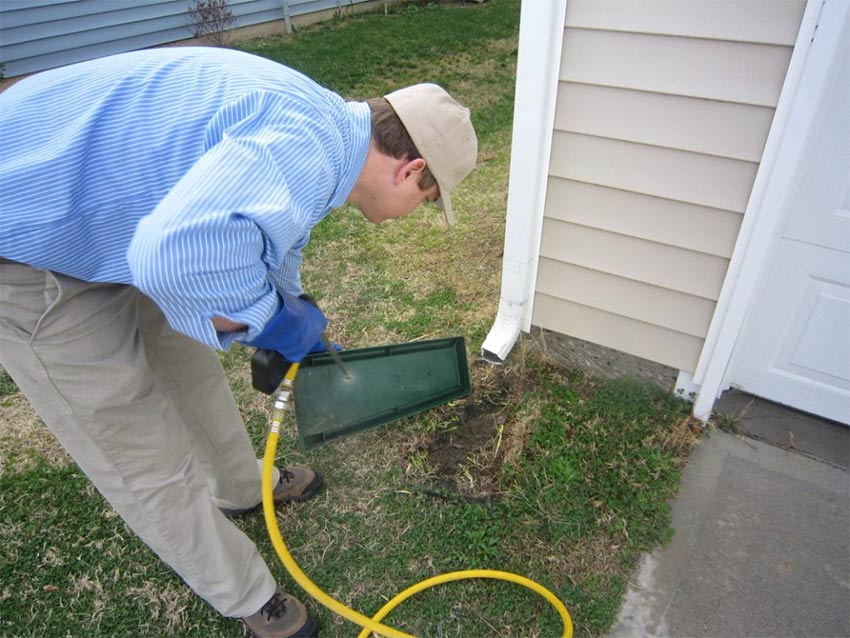We have discovered the article about Effective DIY Insect Repellents for Home and Garden below on the web and felt it made good sense to write about it with you over here.

Summertime time corresponds to lots of exterior enjoyable. Nonetheless, it also indicates that pests are in abundance. Do not be shocked if flies, insects, roaches, and ants infiltrate your residence. If you do not desire undesirable guests to invade your residential or commercial property, chemical pesticides is not your only service. You can likewise depend on details vegetation to maintain weird crawlies away. With critical use plants, you can minimize making use of toxic insect repellent. Right here are the best plants that do wonders in driving bugs away. Plus, these plants offer you an included perk of visual appeal and also fantastic scent.
Marigold
These golden flowers resemble a ray of sunshine. They will certainly make any area appearance positive and vivid. Most importantly, the aroma of marigolds drive insects away. They even repel rats as well as rabbit. Therefore, they will certainly make a wonderful enhancement inside your home and also outdoors. Plant a bed around your residence to drive bugs while adding to your house's curbside charm.
Lemongrass
Lemongrass has a great citrus scent reminiscent of citronella, which is the essential active ingredient of natural pest repellants. Though the human nose likes the scent, it drives insects insane. So proceed and plant pots of citronella as well as keep them throughout your house. You will certainly love the fresh, tidy fragrance without a doubt.
Lavender
The aroma of lavender is noted for its stress-relieving as well as relaxing residential or commercial properties. Hence, numerous research studies say that it even advertises good rest. Amusing sufficient, the same fragrance that humans like drives insects away. Actually, you will locate many store-bought sachets with lavender for your cupboards since they work incredibly well in turning-off moths. You can also keep potted plants near entrances to shut out moths, fleas, mosquitoes, and also rats.
Chrysanthemums
These flowers are not only attractive but they have the power to cleanse indoor air. They are wonderful at eliminating toxic substances. Most importantly, these blooms ward off ants, lice, fleas, vermins, silverfish, ticks, and also roaches. These beautiful flowers will make you smile so go head as well as position them around your house.
Mint
This is a popular flavor for tooth paste, mouthwash, periodontal, as well as also gelato. Numerous individuals enjoy the one-of-a-kind taste which leaves a tingling feeling in your taste buds. But the taste as well as aroma of mint that humans love is irritating for mosquitoes. You can diffuse mint important oils or make your own mint spay by mixing a few declines with vinegar and also vodka.
Basil
Basil is a wonder natural herb that can be found in convenient. You can use it for numerous recipes like pastas, stews, pizza, salads, and soups. On top of being an excellent ingredient, basil is a big insect turn off due to the fact that they do not such as the scent. If you desire pests, specifically mosquitoes and flies, far from your residence, location pots of basil near your home windows as well as entryways. You don't' also require a green thumb to expand basil because they are resilient plants that are extremely easy to grow.
Rosemary
Finally, include rosemary in your herb garden because they drive mosquitoes away. You can maintain pots inside as well as outdoors. Besides, sprigs of rosemary drive away moths as well as silverfish. On top of that, this is an additional terrific natural herb that you can utilize for cooking.
However, if you do not feel like growing or have a severe infestation, you have to call a specialist exterminator to handle pest swarms. A trustworthy company can zap them away with environmentally friendly chemicals, and also help you develop a preventative strategy with plants and important oils.
Plant – Based Insect Repellents
Insects. As much as we need them, they can be quite a nuisance. Although insect repellents abound, far too few are ecologically friendly. Most are composed of harsh and potentially harmful chemicals, with warning labels worthy of any horror story. The good news? Just as nature provides us with an overabundance of insects, it also provides us with all-natural, plant-based remedies to drive them back from whence they came. Whether your home is under assault from ants, aphids, caterpillars, flies, mosquitos or other creepy crawlies, don’t worry: mother nature has your back.
One common, natural insect repellent is also a common food ingredient. Spearmints not only a delicious flavoring for chewing, it also drives away several many common insects. Ants, for example, are a common problem for many household owners. No matter how many traps we leave for them, they seem to find their way in. Spearmint sachets placed strategically in different locations around your home will cause ants to reconsider their venture. Spearmint works well on several other insects that can commonly find their way into your home, including moths and fleas. Likewise, mixing spearmint oil with water in a spray bottle can help to alleviate an aphid or cabbage butterfly problem in your garden.
Wormwood is also a great option for driving back the rebel horde of insects that want to either ruin your garden or your peace of mind. While there are many varieties of Wormwood, there’s only one you’re going to want to solve your insect frustrations: Artemisia absinthium, or grand wormwood. If you recognize your latin, then the answer to the question bubbling around in your head right now is “yes!”. This is the same wormwood that the alcoholic spirit absinthe is derived from. It is also the same, bitter plant that literature buffs will recognize from an easily-missed quote from the Nurse in Romeo and Juliet. Wormwood is ultimately a bitter plant. Once used to help wean children from nursing, this plant can provide excellent resistance for a large number of insects. Crafting a tea out of the leaves, or using the oils mixed with water makes for an excellent repellent. Spraying the wormwood around areas of infestation can help drive back flies and fleas from inside your home, and can repel slugs away from your garden’s plants.
You’ll find that basil is also an effective bug repellent for several of your indoor, flying pests. Several types of flies seem to strongly dislike the scent and the taste. Common house flies, white flies and fruit flies all dislike the plant. Utilizing a basil-based spray can help prevent them from taking up residence in your home. This could well be a divine intervention for those who with a flair for making homemade jams and jellies. As your kitchen starts filling with fruits of all kinds, the flies begin to swarm. A good basil mixture, sprayed around or hung in sachets, should help put the brakes on your yearly fly problems.
Many other insects also have their all-natural repellents. Caterpillars, for example, find garlic to be abhorrent. So too do aphids, mosquitoes, snails and weevils. Most insects that either bug your home or invade your garden have a natural, plant-based remedy to drive them away. And in most cases, you already have the ingredients already in your home, or easily purchased from your nearest grocery store. Why resort to often foul smelling chemicals? Nature has just what you need to keep your home and garden virtually insect-free.
https://www.permaculturenews.org/2016/01/07/plant-based-insect-repellents/

I have been very fascinated by Effective DIY Insect Repellents for Home and Garden and I am praying you enjoyed the page. Enjoyed our article? Please share it. Help someone else discover it. We treasure reading our article about Effective DIY Insect Repellents for Home and Garden.
Set Up An Appointment